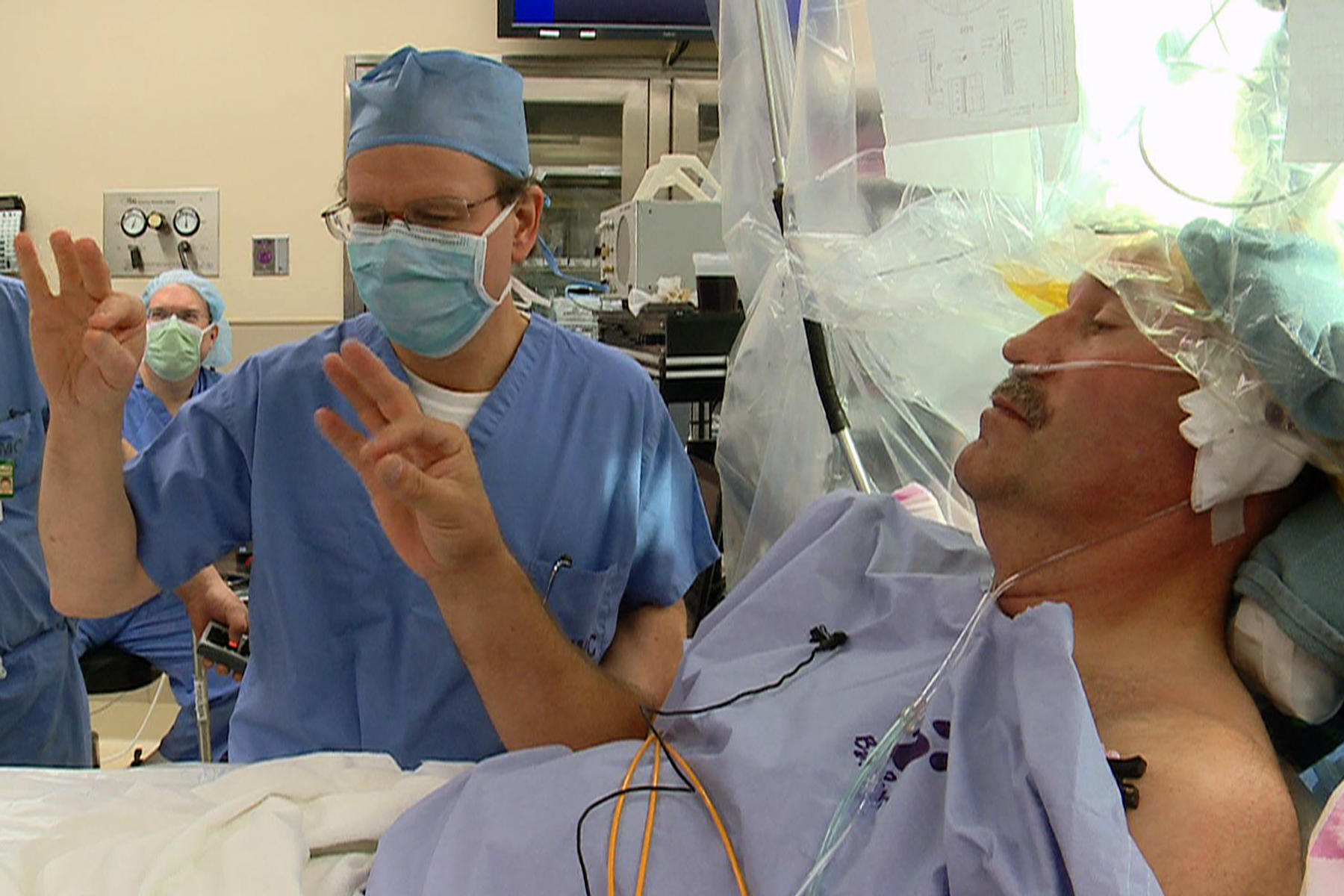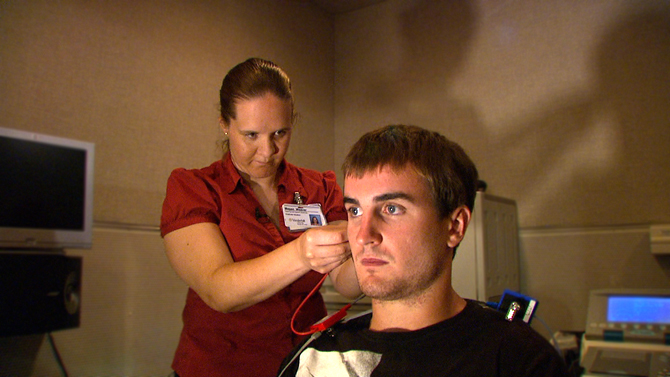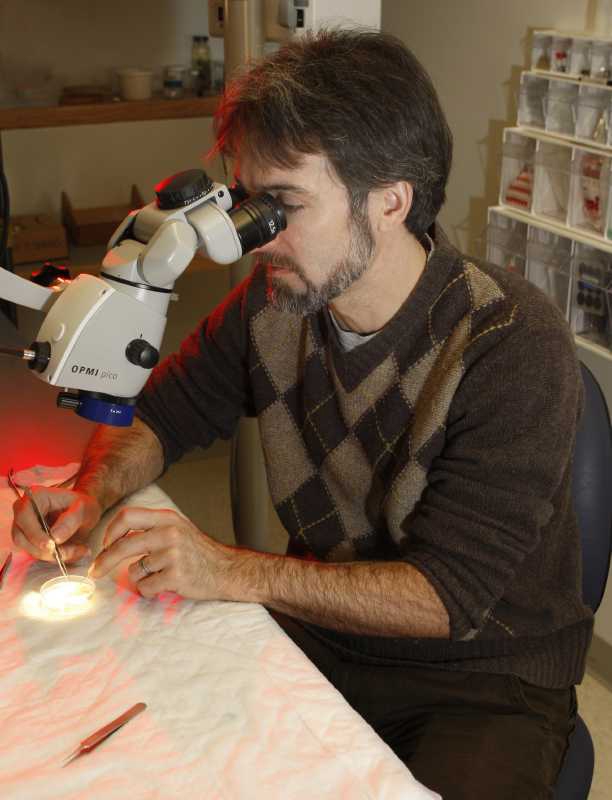Science/Medicine
-

Inside a Pred’s Coach’s Deep Brain Stimulation Surgery
When the Nashville Predators take the ice—it’s all about strength, precision and teamwork. But when a beloved former coach with the Preds started feeling the harsh symptoms of Parkinson’s Disease—he turned to a team here at Vanderbilt. Coach Brent Peterson allowed VUCast’s Carole Bartoo and Mike Todd inside the operating… Read MoreJan 30, 2012
-

Developing robots for the hospital emergency room
(Photo credit: iStock photo) Are you ready for robots in the ER? A group of computer engineers at Vanderbilt University is convinced that the basic technology is now available to create robot assistants that can perform effectively in the often-chaotic environment of the emergency room. The specialists in emergency medicine… Read MoreDec 6, 2010
-

New NRC report provides data on 31 Vanderbilt doctoral programs
A new report from the National Research Council offers insights into 31 doctoral programs at Vanderbilt University, and finds the programs to be competitive with those at other top research institutions in the United States. The report is based on data collected for the 2005-2006 academic year… Read MoreSep 28, 2010
-

Hearing loss in U.S. adolescents more prevalent
Hearing loss is now affecting nearly 20 percent of U.S. adolescents age 12-19, a rise of 5 percent over the last 15 years, according to a new Journal of the American Medical Association (JAMA) study co-led by Ron Eavey, director of the Vanderbilt Bill Wilkerson Center and the Guy M. Read MoreAug 17, 2010
-

Vanderbilt No. 12 on 2010 list of best places for life scientists to work
Ken Catania Vanderbilt University was named one of the best places for life scientists to work in academia by The Scientist magazine. It was the seventh time in the eight years of the survey that Vanderbilt was ranked and a substantial improvement from its 2009 ranking. Vanderbilt was ranked… Read MoreJun 30, 2010
-

Nanosponge drug delivery system more effective than direct injection
When loaded with an anticancer drug, a delivery system based on a novel material called nanosponge is three to five times more effective at reducing tumor growth than direct injection. Read MoreJun 1, 2010
-

Vanderbilt medical researchers, engineers play major role in new national center established to secure the privacy of electronic health information
Slowly but steadily the U.S. health care community is moving into the digital age: shifting their medical records from paper to electronic information systems. This movement raises serious concerns about security and privacy of patients’ medical information. Read MoreMay 28, 2010
-

How cancer cells lose their (circadian) rhythm
Immortality and uncontrolled cell division are the fundamental differences between cancer cells and normal cells. Read MoreMay 10, 2010
-

Scientific team receives award for networking toolkit
Vanderbilt Professor of Physics Paul Sheldon heads a multi-institutional team that has received an Internet2 award for a networking system that they have developed to make it easier to move and store mountains of digital data. Read MoreApr 29, 2010
-

Watch: VUCast: Life lessons for medical students, and they can juggle what?
The "real world" for medical students; a presidential appointment; discovering a new element; and they juggled what? It’s VUCast time for April 16. Read MoreApr 16, 2010
-

Watch: “Primordial Ice Reservoirs of the Solar System”
Watch video of the Seyfert Lecture given by Dr. David C. Jewitt. Read MoreMar 30, 2010
-

Psychopaths’ brains wired to seek rewards, no matter the consequences
The brains of psychopaths appear to be wired to keep seeking a reward at any cost, new research from Vanderbilt University finds. The research uncovers the role of the brain's reward system in psychopathy and opens a new area of study for understanding what drives these individuals. Read MoreMar 16, 2010
-

Vanderbilt professor offers key factors in recruiting minorities, women to critical science, engineering careers
Identification of students with unrealized potential, continuous tracking of individual performance and intensive, one-on-one mentoring are key factors in successfully recruiting underrepresented minorities and women into the critical professions of science, technology, engineering and mathematics (STEM). Read MoreMar 16, 2010
-

Human cells exhibit foraging behavior like amoebae and bacteria
When cells move about in the body, they follow a complex pattern similar to that which amoebae and bacteria use when searching for food, a team of Vanderbilt researchers have found. Read MoreMar 11, 2010
-

New university research news channel, Futurity, goes global
Futurity.org, an online university news channel targeted to members of the public interested in basic research, has expanded beyond its North American base to include science news from leading British universities. Read MoreMar 9, 2010
-

Vanderbilt physicists play key role in measuring material hotter than the sun
Three Vanderbilt physicists are members of the scientific team that have reported creating an exotic state of matter with a temperature of four trillion degrees Celsius. It's the hottest temperature ever achieved in a laboratory and 250,000 times hotter than the heart of the sun. Read MoreFeb 19, 2010
-

A new type of genetic variation could strengthen natural selection
The unexpected discovery of a new type of genetic variation suggests that natural selection – the force that drives evolution – is both more powerful and more complex than scientists have thought. Read MoreFeb 18, 2010
-

Scientists transplant nose of mosquito, advance fight against malaria
Scientists at Vanderbilt and Yale universities have successfully transplanted most of the "nose" of the mosquito that spreads malaria into frog eggs and fruit flies and are employing these surrogates to combat the spread of the deadly and debilitating disease that afflicts 500 million people. Read MoreFeb 16, 2010
-

Sequencing wasp genome sheds new light on sexual parasite
Seth Bordenstein, assistant professor of biological sciences at Vanderbilt, is studying the relationship between this parasitic bacteria and Nasonia, a genus of small wasps that prey on various species of flies, including houseflies, blowflies and flesh flies. Read MoreJan 14, 2010
-

TIPSHEET: The future of Pluto and Ceres
Three years ago, when the International Astronomical Union demoted Pluto to dwarf planet status, the unpopular decision was based on personal opinions and professional politics, not on rigorous scientific criteria that can clearly differentiate planets from lesser bodies, points out Vanderbilt astronomer David Weintraub. In the next decade, however, the amount of knowledge that we have about Pluto and another dwarf planet, Ceres, will change dramatically and this new information may affect our views of these objects and their status in the solar system as asteroids, dwarf planets or planets. Read MoreDec 21, 2009